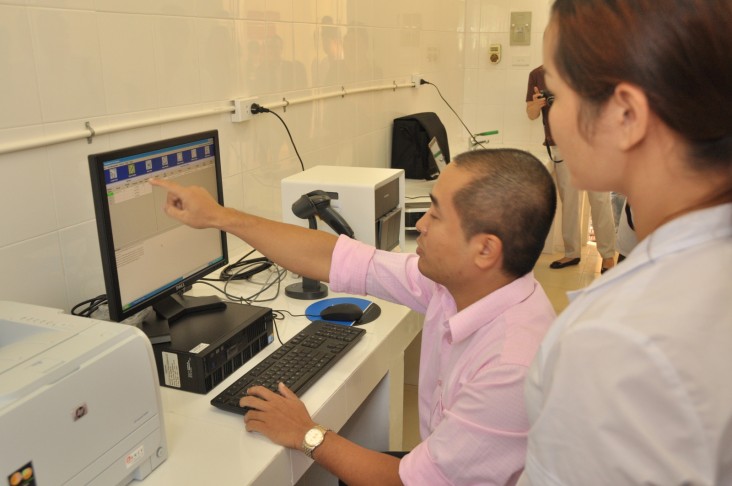
For Immediate Release
DIEN BIEN, Vietnam -- Laboratory technicians have completed training on cutting-edge laboratory equipment provided to Vietnam's National Tuberculosis Control Program with U.S. support that will help control the spread of tuberculosis by shortening the time to diagnose tuberculosis and rifampicin drug resistance from several months to under two hours.
Funded by the U.S. Agency for International Development (USAID), 17 Xpert MTB/RIF Testing Systems have been delivered this year along with over 12,000 testing cartridges to hospitals and clinics in 13 provinces with multi-drug resistant (MDR-TB) treatment facilities and other provinces with a high prevalence of HIV.
"We are pleased to see that capable staff technicians are now trained to use this equipment, and we look forward to hearing about the results in detecting TB cases and treating them the same day," said USAID Mission Director Joakim Parker. "We expect that this technology will have a significant and positive impact on TB and MDR TB case detection over time."
The Xpert system, manufactured by U.S.-based Cepheid, is a molecular diagnostic system that is particularly effective for the diagnosis of patients with drug-resistant TB and TB/HIV cases in areas with high rates of TB and HIV. The final training session was carried out this month in Dien Bien.
USAID and its implementing partners have provided training and technical assistance for 588 technicians to develop capacity to use this new testing technique to help ensure that high prevalence provinces make the best use of this equipment in support of Vietnam's National Strategic Plan for TB Control.
With an estimated number of 180,000 TB cases every year, Vietnam is listed by the World Health Organization (WHO) as the 12th of 22 high TB burden countries. Of these, about 100,000 patients are notified and treated every year, and over 90 percent complete treatment. According to WHO, 29,000 people die from TB each year in Vietnam. That is equivalent to three deaths an hour. Some 14,000 TB patients (about 8 percent) are also infected with the HIV virus.
Prior to Dien Bien, 12 provinces and cities have already put the new systems to work with encouraging results. From June to September 2012, 1,263 people were screened using the Xpert system; of these individuals, 209 were diagnosed with MDR TB and 661 with non-MDR TB. Compared to the total of 487 MDR TB patients diagnosed in the entire nation for the first nine months of the year, 42.5 percent of all MDR TB patients recorded from January to September 2012 were detected using the USAID-supported Xpert systems.
Since 2007, USAID has also supported comprehensive TB and TB/HIV programming to improve access to quality services in the public, private and community sectors.







Comment
Make a general inquiry or suggest an improvement.